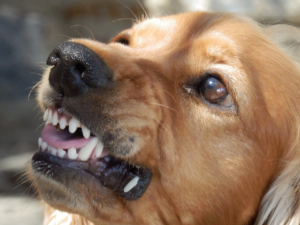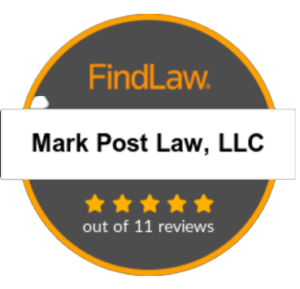Dog Bites

Free & Confidential Consultation: If we don’t win, you don’t pay a fee!
MARK POST LAW WILL ENSURE YOU ARE TREATED FAIRLY AND RECEIVE THE MONEY THAT YOU DESERVE.
WHAT A DOG BITE PERSONAL INJURY ATTORNEY CAN DO FOR YOU.
Dog bites often result in puncture wounds, lacerations, and permanent scarring that can require plastic surgery to repair. They can also result in amputation and death in the worst cases. The key to dog bite claims is understanding the law and the history of the involved animal. When a dog owner knows about the vicious tendencies of their animal, they can be held liable for allowing it to run free. We specialize in dog bites and have an intimate familiarity with dog bite law in Georgia. The other key in these claims is to locate insurance coverage for the dog owner, as sadly many owners do not have coverage. Often a lawsuit is necessary to locate such coverage. We are available to help you and your loved ones recover here in Columbus and elsewhere as adults and especially children are vulnerable to vicious animals.
GEORGIA STATUTE ON DOG BITES
O.C.G.A. § 51-2-7 provides as follows:
A person who owns or keeps a vicious or dangerous animal of any kind and who, by careless management or by allowing the animal to go at liberty, causes injury to another person who does not provoke the injury by his own act may be liable in damages to the person so injured. In proving vicious propensity, it shall be sufficient to show that the animal was required to be at heel or on a leash by an ordinance of a city, county, or consolidated government, and the said animal was at the time of the occurrence not at heel or on a leash. The foregoing sentence shall not apply to domesticated fowl including roosters with spurs. The foregoing sentence shall not apply to domesticated livestock.
Pursuant to this Code section, “a plaintiff must show that (1) the owner carelessly managed or allowed the animal to go at liberty; (2) the animal was vicious or unrestrained at the time of the injury in violation of a local ordinance requiring such restraint; and (3) the animal caused the injury.” Myers v. Ogden, 343 Ga. App. 771, 773, 807 S.E.2d 926, 927 (2017).
CITY OF COLUMBUS ORDINANCE
It is notable that Muscogee County has an ordinance that requires that dogs be restrained. That ordinance provides as follows:
Section 5‐10.
Control of dogs and cats
(a) Generally. Irrespective of and/or in addition to impoundment provisions, including assessment of penalty fees relating fees relating to impoundment of animals as prescribed in other sections of this chapter, it shall be unlawful for owners of dogs to allow, permit, or by negligence to permit their dogs to be unattended. Any dog on the owner’s property and not confined thereto by fence, chain, or other suitable and effective means, and when no responsible person is present to control such dog, shall be considered unattended and in violation of this chapter only if said dog has been observed on public property or private property other than property of the owner, and not in voice control of a responsible person, by an enforcement officer of Columbus, Georgia or by a complainant willing to testify in court. Dog and cat owners residing in rural areas of the city and whose lots are zoned A‐1 (agricultural) and whose said lots are five (5) acres or more in area, are exempt from the requirement to keep dogs penned, or on a leash, and/or under voice control. These expected owners are required to ensure that their dogs and cats do not leave the limits of the owner’s property, and these owners are subject to all other provisions of this chapter.
(b) Female dogs. It shall be unlawful for any person to allow a female dog, when it is breeding season, to go upon or have access to the streets, roads or public areas of Columbus, Georgia. Female dogs shall be confined in such places and manner as well as avoid nuisances being caused by the attraction of male dogs to the premises of others or under any circumstances.
(c) Leash required in public parks. Without regard to other provisions of this article or other sections of the Columbus Code, it shall be unlawful for owners of dogs, cats or other animals to allow or permit such animals to be, or by negligence fail to prevent such animals from being in public parks, unless restrained by a leash and under the control of a responsible person.
A PRIMER ON GEORIGA DOG BITE LAW AND THE “FIRST BITE RULE”
Based on the statutory text and the history of Georgia law, it appears that, when a local jurisdiction [like Muscogee] passes an ordinance requiring that owners restrain their animals and it is shown that the animal at issue was unrestrained at the time of the incident, the second sentence of O.C.G.A. § 51-2-7 displaces the common law presumption that a dog is a harmless species and instead defines such unrestrained animals as “vicious.” However, the second sentence by its text does not displace the requirement in the common law, which our courts have read into the statute’s first sentence, that a plaintiff seeking to recover under O.C..GA. § 51-2-7 must also prove that the owner had knowledge of the vicious or dangerous propensity of the animal. Therefore, reading the two sentences together, and consistent with our case law construing the statute, in situations where a plaintiff has shown that a local ordinance required the animal to be restrained and the animal was not restrained at the time of the incident, a plaintiff seeking to recover under O.C.G.A. § 51-2-7 must still prove scienter (knowledge) and can do so in two ways: by showing that the owner had knowledge of the animal’s vicious propensity as defined by the common law or by showing that the owner knew that the animal was unrestrained at the time of the injury. In addition to scienter (knowledge), a plaintiff seeking to recover under O.C.G.A. § 51-2-7 must also show that the owner carelessly managed or allowed the animal to go at liberty; the animal caused the injury; and the injured party did not provoke the injury by his own act.
When it comes to cases involving dog bites, the requirement that the owner or keeper of a dog must be proved to have knowledge of the vicious or dangerous nature of his dog has become known as the “first bite rule.” To the extent, however, that the term implies that the requisite knowledge cannot be proved unless and until the dog actually has bitten someone (and the owner or keeper knows it), the term is more than a bit misleading. As our Court of Appeals correctly has noted, the rule ‘does not literally require a first bite.’ Kringle v. Elliott, 301 Ga. App. 1, 1-2 (2009). To be sure, a plaintiff must show that the owner or keeper has “reason to know of [the dog’s] propensity to do harm of the type which it inflicts.” Torrance v. Brennan, 209 Ga. App. 65, 67 (2) (1993) (citations and punctuation omitted). See also Johnson v. Kvasny, 230 Ga. App. 162, 163 (1998); Rowlette, 219 Ga. App. at 599. Cf. Munroe v. Universal Health Svcs., 277 Ga. 861, 863 (1) (2004) (“a defendant employer has a duty to exercise ordinary care not to hire or retain an employee the employer knew or should have known posed a risk of harm to others where it is reasonably foreseeable from the employee’s ‘tendencies’ or propensities that the employee could cause the type of harm sustained by the plaintiff”). But “this does not mean an incident involving the exact same conduct and the exact same injury must actually occur before the owner’s knowledge may be inferred.” Rather, “to infer the requisite knowledge[,] there must be at least one incident that would cause a prudent person to anticipate the actual incident that caused the injury.”
Here at Mark Post Law, LLC, we know how to investigate the history of the dog and the dog owner’s knowledge in order to prove your case. We look forward to helping you.







